- Home
- artificial intelligence
- news
- Introducing the Workforce Innovation board, sharing insights on how AI, worker well-being, and C-suite transformation are shaping business
Introducing the Workforce Innovation board, sharing insights on how AI, worker well-being, and C-suite transformation are shaping business

A cross-functional panel of leaders will tackle topics such as C-suite innovation, AI, and worker wellness.
This article is part of "Workforce Innovation," a series exploring the forces shaping enterprise transformation.
The pressures and opportunities changing the workplace are universal. No industry or employee level is untouched by the transformative impact of artificial intelligence, the enduring balancing act between worker well-being and productivity, and the evolving nature of leadership.
Business Insider created this Workforce Innovation series to dig into these topics. As Tim Paradis wrote in the series' inaugural article, "Work doesn't work like it used to."
To help us, BI has convened a Workforce Innovation board. Representing a range of enterprise functions and industry verticals, the people on this board will participate in six roundtable conversations focused on the four key themes of the series: AI, C-suite transformation, worker wellness, and DEI.
The role of the Workforce Innovation board is to help us identify the most important changes and trends emerging in the workplace and to offer insights from their own experiences managing the office revolution.
We're excited that so many great leaders have dedicated time in their busy calendars to helping us tell these stories, which will help business leaders make better decisions, improve productivity, and drive growth.
Anant Adya, executive vice president, service offering head, and head of Americas delivery, Infosys
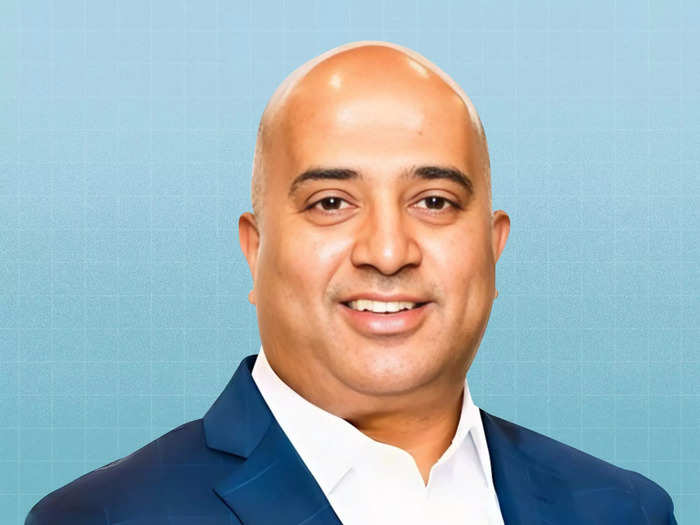
Adya works with global enterprises to build their cloud strategies and drive digital transformations including investments in cloud technology and AI to enable business innovations.
The company developed a generative AI tool called Infosys Topaz, which provides AI-based services and platforms to clients across industries. One of the communication technologies Adya and his team are developing is a natural-language processing engine designed to facilitate better human-computer conversations.
"I believe advanced natural language processing will fundamentally transform how humans interact with technology, unlocking new possibilities," Adya said in an interview with Authority Magazine. "By enabling truly conversational AI, we can make virtually any interface more intuitive and accessible."
Jack Azagury, group chief executive for consulting, Accenture
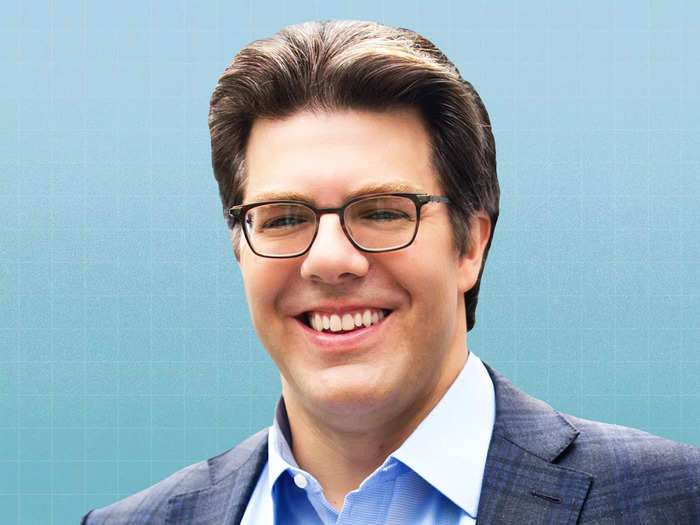
Azagury leads a global team of more than 47,000 people across Accenture's strategy and consulting services and is a member of the company's global management committee. His remit spans industry and enterprise functions as well as applied intelligence, innovation, and corporate strategy practices.
In January, Accenture published a "Pulse of Change" index suggesting business leaders anticipated unprecedented change in 2024 — much of it related to talent and workers' expanding tech skills.
"We believe that the companies that will succeed in the next decade are those that embrace a strategy of continuously reinventing every part of their business using technology, data, and AI," Azagury said in a statement, "including harnessing the power of generative AI, and ensuring their people are at the center of their transformations."
Lucrecia Borgonovo, chief talent and organizational effectiveness officer, Mastercard
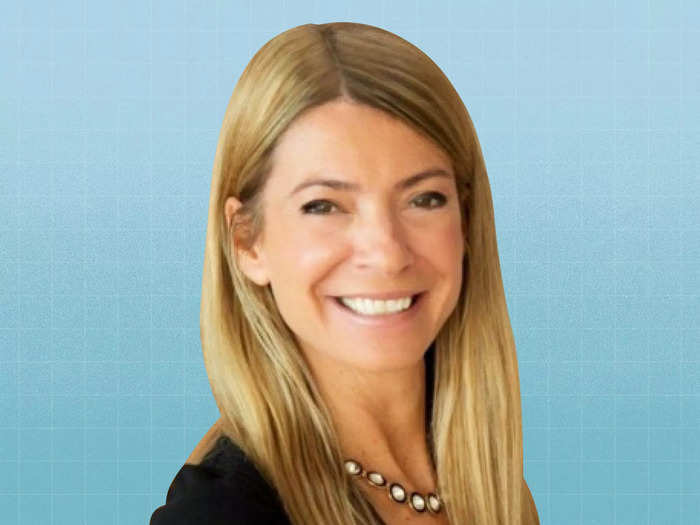
Borgonovo leads Mastercard's workforce strategy to attract, develop, and retain talent as the company's chief talent and organizational effectiveness officer. In her role, Borgonovo integrates workforce skills building, engagement, and culture with Mastercard's business goals. She previously worked for global brands in financial services, apparel, and pharmaceuticals.
In 2022, Mastercard launched Unlocked, an AI-based "internal talent marketplace" that allows employees to look for short-term projects, learning pathways, and mentorship opportunities that align with the skill sets they want to build. The company said in May that 90% of its workforce was on the platform.
"AI and emerging technologies almost always spark questions, curiosities, concerns — even fear," Borgonovo said in an article written with Anshul Sheopuri. "We recognize the best way to build trust is to bring our employees along with us on our AI journey, ensuring they are made aware of and educated about our commitment to responsible and ethical AI — in addition to the benefits that AI can bring to their day-to-day experiences and overall career path."
Kenon Chen, executive vice president of strategy and growth, Clear Capital
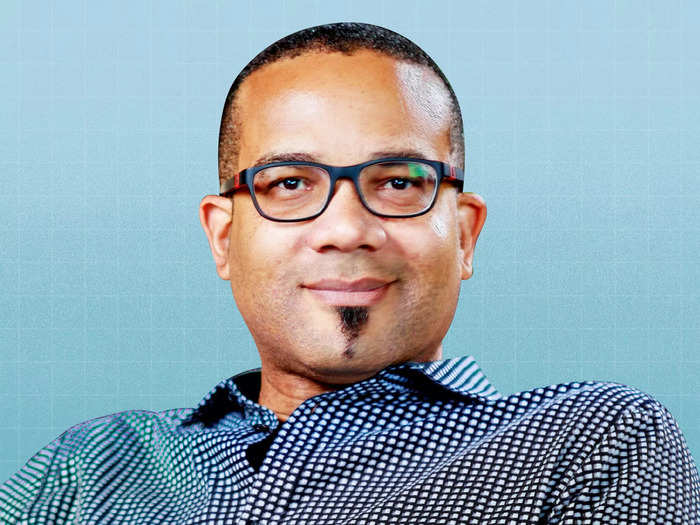
Chen leads Clear Capital's corporate strategy at the intersection of its executive, product, marketing, and sales teams. Previously he was the director of technology at Roundpeg.
Chen seeks to approach real-estate transactions with progressive technology solutions. At Clear Capital, he developed and launched ClearCollateral, an automated underwriting and appraisal-review system, and ClearProp, a tool for property analysis and valuation.
"As we move forward, it is imperative to approach AI adoption with a balanced perspective, emphasizing rigorous training, testing, accountability, and continuous improvement," Chen wrote in an article for HousingWire. "By doing so, we can dial down the fear knob and pave the way for responsible and beneficial integration of AI into mortgage lending practices, ultimately enhancing efficiency while preserving trust and confidence in the lending process."
Chris Deri, chief corporate affairs officer and president of C-suite advisory, Weber Shandwick Collective
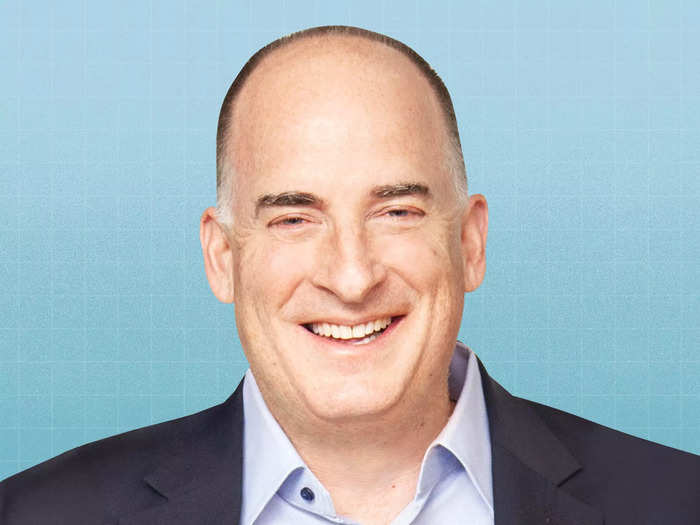
Deri leads a team of over 600 professionals to advise C-suite leaders on organizational strategy, societal engagement, and public positioning. Previously he served as the president of Teneo and WCG.
Deri has advised leaders in markets across the Americas, Europe, Asia, and the Middle East on issues such as public diplomacy, digital strategy, and sustainability in an evolving corporate sphere. He cowrote an article for USC Annenberg arguing that companies need to evolve to respond better to reputational threats.
"If companies want to deliver effective messaging to build their reputations, they must adopt a more fluid organizational structure capable of responding to the competing demands of their stakeholders in real-time," the article said, adding that "real change requires a radical rethink of organizational structure, necessary data, community tech, conversational computing, and immersive experiences."
Maggie Hulce, chief revenue officer, Indeed
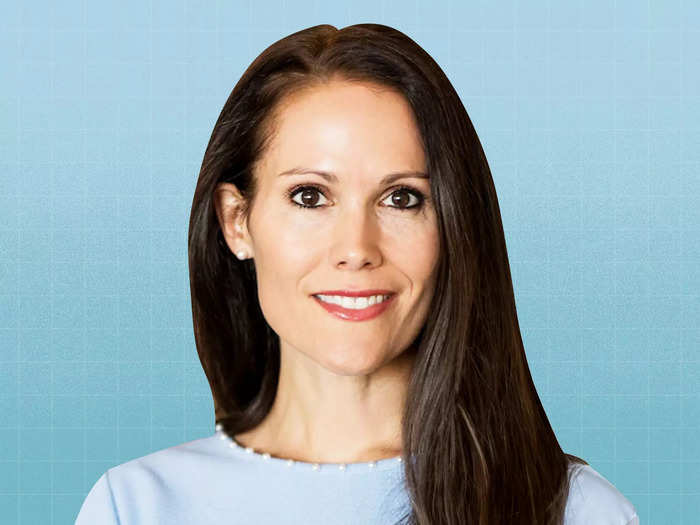
Hulce leads Indeed's global revenue organization, including sales, client success, go-to-market acceleration, and marketing teams.
Prior to her current role she was the executive vice president and general manager for Job Seeker at Indeed, where she led product, engineering, design, strategy, and operations teams. Before that, Hulce served as general manager of enterprise research and development and vice president of global sales strategy. She has also held positions at Google and McKinsey and is a board member of Social Venture Partners and a member of the Connecticut Governor's Workforce Council.
Hulce has been at the forefront of Indeed's rollout of Smart Sourcing, an AI-powered suite of products that aims to help companies have better outcomes and experiences in the hiring process. "AI can and will make hiring way simpler and faster," Hulce said in a recent statement. "But together, we can ensure the 'human' is always at the heart of hiring."
Francine Katsoudas, executive vice president and chief people, policy, and purpose officer, Cisco
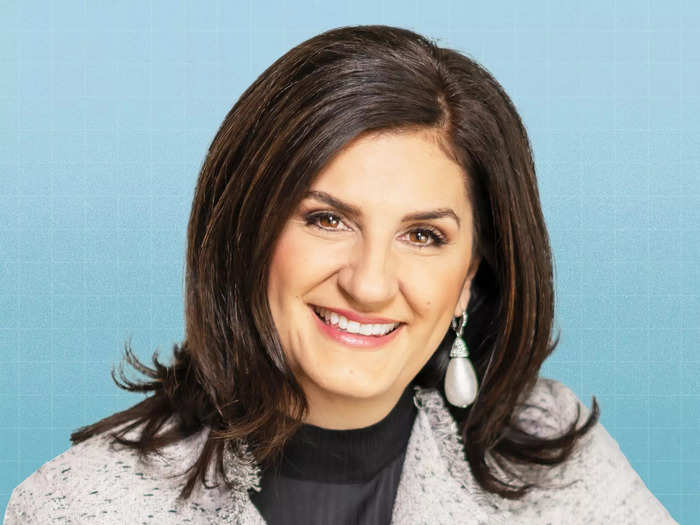
Katsoudas' broad remit at Cisco spans people and communities, sustainability, social impact, government affairs and policy, workplace resources, and digital acceleration.
A 27-year veteran of the company, Fran has been a driver of organizational transformations, large-scale growth, and the building of an employee-first culture.
In April, Cisco — along with Accenture, Eightfold, Google, IBM, Indeed, Intel, Microsoft, and SAP — announced the formation of a workforce consortium focused on upskilling and reskilling roles that could be affected by AI.
"AI is accelerating the pace of change for the global workforce, presenting a powerful opportunity for the private sector to help upskill and reskill workers for the future," Katsoudas said in the announcement. "We look forward to engaging other stakeholders — including governments, NGOs, and the academic community — as we take this important first step toward ensuring that the AI revolution leaves no one behind."
Shane Koller, senior vice president of people and places, Ancestry
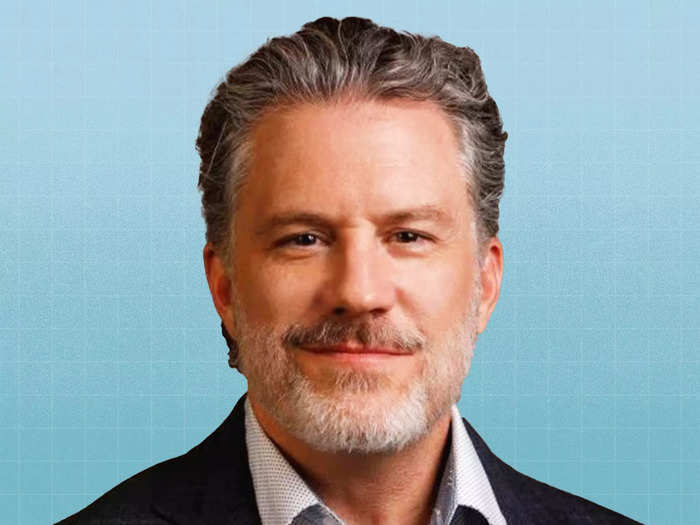
Koller previously led Ancestry's talent operations, management, and development initiatives as the vice president of people. He also held HR roles in tech, healthcare, and medical-devices industries, including leadership at Domo and Banjo to grow their company scales, before joining Ancestry in 2020.
In talking about Ancestry's work-from-anywhere approach, Koller described a connection between workplace flexibility and the company's ability to recruit top employees from a range of locations. "By no longer being limited to the boundaries of our office locations, we can broaden our hiring capabilities to reach more underrepresented talent and provide a level playing field for equitable participation of talent," he said in an interview with The Washington Post.
Neil Murray, CEO of Work Dynamics at JLL
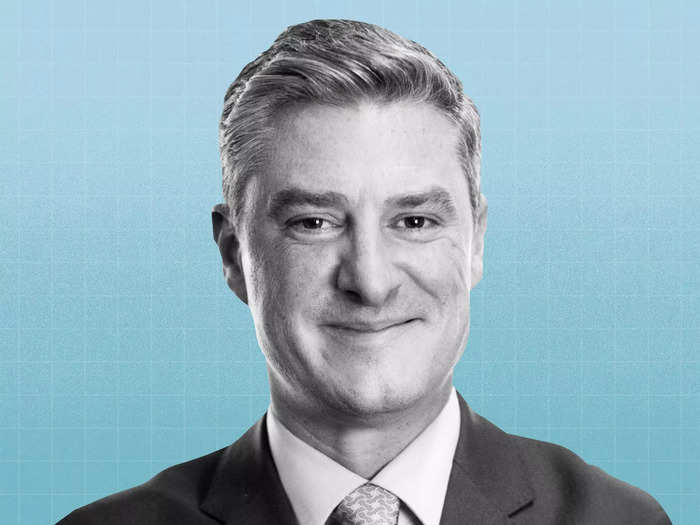
Murray serves as a member of JLL's global executive board and a global sponsor for JLL's corporate client advisory board. With a specialization in real estate, Murray's team advises global Fortune 1000 companies on adapting to the future of work.
JLL's 2024 Global Occupancy Planning Benchmarking Report indicates space planning and management for a hybrid workforce have become critical for businesses since the pandemic.
With health and well-being becoming important priorities for workers, "the forward-looking organizations will be those who acknowledge these new workforce expectations through an in-depth rethinking of their approach to working styles and the workplace," Murray said in an article for the magazine Chief Executive, adding, "The office of the future must be human-centered, where employee-centric solutions that value health, wellbeing, choice and flexibility will be the fundamental framework to optimize both employee experience and performance."
Justina Nixon-Saintil, vice president and chief impact officer, IBM
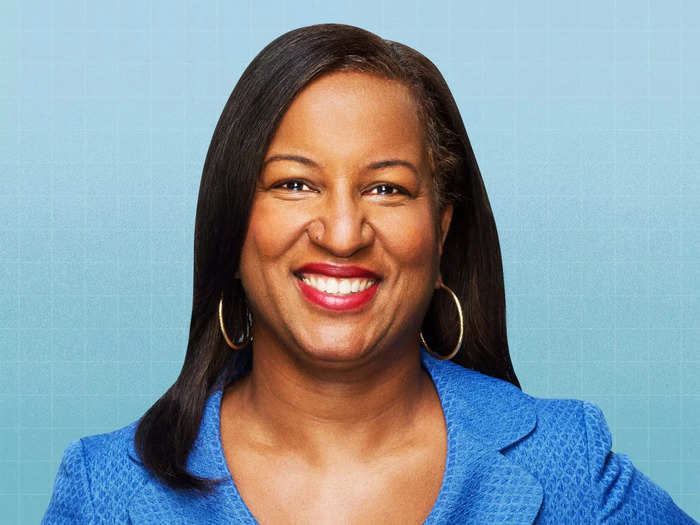
Nixon-Saintil leads IBM's career-readiness initiatives, education partnerships, and curricula. Her global team provides access to coursework on subjects including AI, environmental sustainability, and professional workplace skills through IBM SkillsBuild, the organization's free education program.
This year, IBM SkillsBuild partnered with Usher's New Look to offer training and customized learning plans on AI for thousands of students across the country, including high schoolers and college-age youth from communities traditionally underrepresented in technology. The curriculum seeks to equip students with knowledge about evolving technological innovations to help prepare them for a competitive workforce.
"As AI continues to be a driving force in the workplace, we believe that IBM SkillsBuild is well-positioned to help students develop the technology skills they'll need to succeed," Nixon-Saintil said in a statement about the collaboration.
Alicia Pittman, global people team chair, BCG

Pittman is the global people team chair at Boston Consulting Group, where she also serves on the firm's executive and operating committees. She was previously the North America consulting people team chair and head of Women@BCG for North America, leading initiatives to upgrade compensation and benefits and expand the company's DEI agenda.
Consulting firms themselves have seen a lot of change in the workforce. Over the past decade, BCG has widened the roles and areas of expertise it draws from, including climate scientists, IT architects, UX designers, and data engineers.
"The depth of breadth of expertise that we have has changed," Pittman said in an interview with Business Insider, adding that generative AI was a notable area of growth for the firm.
"It's going to change the mix of people and expertise that we need," she said.
Marjorie Powell, chief HR officer and senior vice president, AARP
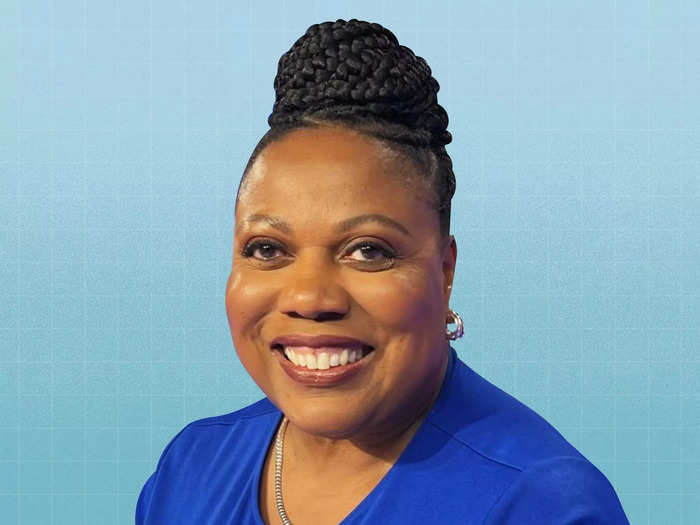
Having had senior and executive roles at universities and major nonprofits, Powell is experienced in HR disciplines including organizational strategy, talent management, and executive compensation.
In her role, Powell navigates the needs and expectations of AARP's multigenerational workforce, which has an average age of about 50. The company has implemented benefits like childcare, including after-school programs and tutors; eldercare; and caregiving leave.
"Our benefits and programs are based on the lifecycle of an employee," Powell said in an interview with Fortune last year, adding: "Whenever we roll out a benefit, we ask whether we're looking at it from a spectrum of ages. That's why we encourage other employers to add age to their diversity metrics."
Purvi Tailor, vice president of human resources, Ferring Pharmaceuticals USA

Tailor oversees Ferring US's human-resources strategy and is a member of the global HR leadership team. Before joining Ferring, Tailor led HR teams in the pharmaceutical and financial-services industries, including Johnson & Johnson's North America Commercial Medical Devices and the Strategic Customer Group, American Express, and JPMorgan Chase.
In 2022, Ferring launched its Building Families at Ferring package, which offers unlimited financial support for family-building care and 26 weeks of paid parental leave. Tailor described the package as changing how companies approach employee benefits and demonstrating that investing in benefits can drive engagement, boost business performance, and attract and retain talent.
"Gone are the days when employers had the luxury of not thinking about what can help drive retention in the workforce," Tailor said in a recent podcast interview with Progyny, the provider of the benefits package for US-based employees, adding that "it's important to look at your workforce, see what you believe would benefit them the most."
Sharawn Tipton, chief people and culture officer, LiveRamp

Tipton heads LiveRamp's strategic initiatives in areas of human capital, including talent development and acquisition, workforce productivity, and DEI. She also serves as the board president of Fair Pay Workplace, supporting companies in achieving equal pay for their employees and mitigating risk.
Previously she was the chief diversity officer at Micron Technology where she established global DEI strategies across the US, EMEA, and APAC. Before LiveRamp and Micron, she was an HR leader at Flex, Gensler, and Safeway.
For Tipton, efforts in diversity, equity, and inclusion start internally — analyzing the foundations of HR processes, policies, and company culture to ensure that these initiatives are a business imperative. "If you look at every process you have within HR — from hire to fire — and you look at it through a DEI lens and reengineer it, that's going to create equality within your company," she said in an interview with Business Insider.
Popular Right Now
Advertisement